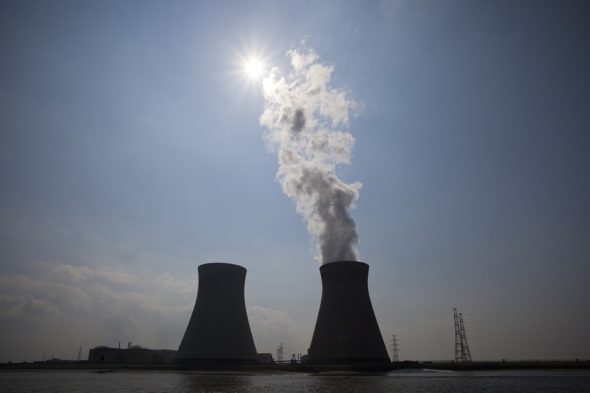During a sitting of the Sejm’s Committee on the European Union, the MPs discussed Germany’s departure from nuclear power, which is being challenged by Poland due to the energy crisis fuelled by Russia. The MPs and representatives of the government agreed that it was necessary to support the renaissance of nuclear power.
Germany’s nuclear power capacity was once 24.9 GW. By 2021, 20.9 GW has been shut down. There are 9 GW worth of active nuclear power units left, the last three facilities providing 12 percent of Germany’s electricity. „If these blocks were not turned off, the CO2 reduction in Germany would be higher by 30 percent. These are estimates, of course. The closure of three blocks in 2021 resulted in an increase in emissions by 4.5 percent,” spelled out the Deputy Minister of Climate Piotr Dziadzio in the Polish Parliament.
„It is likely that the last nuclear plants will be shut down, because that’s the thinking of German politicians and society, which believe that only renewable energy should be used and can power the economy. We assume these blocks will be closed. The missing capacity is being replaced with lignite and hard coal,” Dziadzio explained. „We, as the Republic of Poland, are focused on achieving our own nuclear ambitions. The first nuclear units are planned in 2033 and we plan to have 6-9 GW of power installed in 2043,” revealed the Deputy Minister in response to the demand put forward by the Together party to convince Germany to lease Poland its nuclear power plants, so that they are not closed.
„The public opinion has been misled. These power plants can continue to operate. This decision was made for political reasons. In 2022, shutting down any low-carbon power plants is simply a crime on the climate,” Paulina Matysiak from the Together party pleaded. She recalled that the German government was considering leaving Germany’s last 3 NPPs in operation.
„Nuclear power plants are in the taxonomy, but we should not agree to turning off nuclear power plants. Germany is replacing them with coal-fired units. That’s absurd. We should shut down coal-fired power plants, and at the same time have other ways of getting energy. It is worth considering whether 2033 (the deadline for the launch of the first unit – ed.) is actually an achievable deadline? We have some time, and we should think what we can do in the meantime. Hence came the demand for the lease of the NPPs,” Matysiak explained.
„Climate goals are shared and responsibility is shared. It is not that every country can behave as if its actions have no influence on what is happening in Europe, ” said Adrian Zandberg of the Together party. „I often praise various solutions in the German Federal Republic, for example in the transport sector, but if our neighbors make a mistake, we should honestly and openly talk about it, like partners, without holding anything back,” he added. Zandberg called for a moratorium on nuclear decommissioning. In his opinion, Poland asking to lease German NPPs „would put the debate in Germany on the right track”, because the approach of the German public opinion is changing.
„We are convinced that the Polish government making this demand or it existing in the public debate would emphasize that entire Europe is facing the consequences of Russia’s attack on Ukraine, we are all trying to make the power system work, while Germany is shutting down low-carbon power,” said Maciej Konieczny from the Together party. „It’s a clever way of putting pressure on Germany and putting pressure on the public opinion,” he added.
„Above the political divisions, we can talk in a substantive way. I am positively surprised by the initiative of the members of the Together party who went to Germany to lobby for Polish issues. We can say: together for the atom!”- said Janusz Kowalski (from the ruling Law and Justice party – ed.) in the Sejm.
„I think changing the perspective of the younger generation on other power sources, including nuclear, or even its re-acceptance, is very likely. If the Germans see that they made a mistake in terms of dependence on Russian gas, then perhaps they will understand that abandoning nuclear power is also a bad decision,” said Piotr Dziadzio. „It would be difficult to offer the Germans a lease on their NPPs, because it is not rational from the point of view of the consent of the Germans. It would be more rational to bring them back,” he added.
Wojciech Jakóbik









